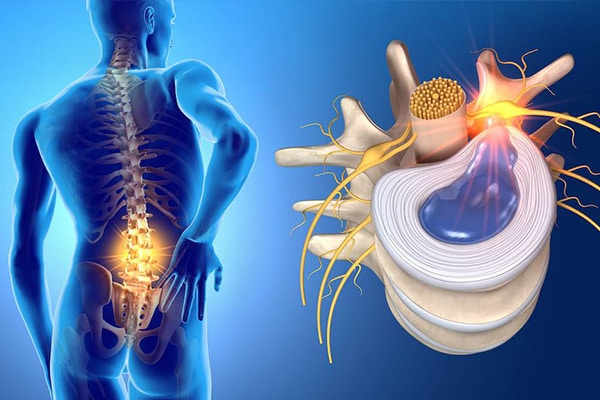
Loading. Please wait.

Loading. Please wait.
Traditional acupuncture is based on the belief that the body is controlled by a flow of energy, referred to as qi, and pronounced "chee." According to ancient texts, qi travels through pathways in your body called meridians. Acupuncturists believe that interruptions with energy flow in these meridians are responsible for modern ailments.
Acupuncture improves your body's functions and helps boost its self-healing processes through anatomic site stimulation - usually called acupuncture points. To stimulate acupuncture points, professionals typically insert fine, sterile needles you're your skin. Most patients feel little-to-no discomfort as the needles are applied. Typically, needles are left in the skin anywhere from five to 30 minutes. After their session, patients often report an incredible feeling of relaxation.
While some practitioners still adhere to traditional acupuncture philosophies, modern acupuncturists take an integrative approach. Today, professional acupuncturists use the therapy to stimulate the body's natural healing and pain-fighting processes. When coupled with personalized chiropractic care and physical therapy, patients can find real relief from painful physical conditions.

At Denville Medical, your licensed physical therapist's goal is to maximize your body's structure and increase its overall function for long-term health. To accomplish this, our physical therapists combine traditional and innovative techniques focused on increasing muscle strength and improving the body's range of motion. Our goal is to discover the root cause of your pain or mobility problems. That way, we can address the true reason why you need physical therapy, and work towards achieving long-lasting relief.
Of course, we understand that every patient is different. Your doctor can provide expert care in an encouraging environment by creating a customized treatment plan for you using modern, evidence-based research.
Professional acupuncture treatments can be incredibly helpful for patients suffering from a wide range of disorders. When paired with personalized chiropractic care and other medical treatments, acupuncture is even more effective.
With a systematic treatment plan, patients can find help for painful symptoms like:








Professionals practicing acupuncture in Victory Gardens, NJ, use several techniques to achieve overall patient wellbeing, from Cupping and Gua Sha to Needling and Facials.
Made popular by Olympic swimmer Michael Phelps, most acupuncturists describe cupping as giving an inverse massage. Rather than using pressure to release tight muscles, acupuncture cups create a suction effect. The suction pulls on muscles and fascia to relieve tension and improve blood flow. Like a massage, cupping is very relaxing for patients. Most people describe it as enjoyable, although the suction cup markings may look painful to friends and family.
Acupuncture cups are made using various materials, including glass and plastic. Cupping applications also vary - some clinics go the traditional route with cotton balls, rubbing alcohol, and fire. Other applications include manual placement with silicone suction points. Usually, patients receive one of two cupping styles. The first uses stationary cups, which remain for about 10 minutes. The second uses moving cups, supplemented with massage oil to let the cups glide over painful areas.
Also called "dry needling," chiropractors and acupuncturists often use this technique to reduce trigger points within soft tissues and muscles. In this application, acupuncturists use a sterile needle and insert it into the trigger point, which fosters a feeling of "release" that helps reduce muscle tension and pain while boosting mobility.
Trigger points are hypersensitive, irritable skeletal muscle areas formed in rigid bands of muscle fiber. Trigger points lead to neuromuscular dysfunction and manifest in painful symptoms, increased stress, and lower overall functionality. During an acupuncture session, these needles are applied to trigger points, which cause a twitch, essentially releasing and restoring proper muscle function.
Gua Sha is the practice of using tools to scrape the skin and apply pressure to painful areas of the face and body. A Gua Sha is a flat, hard tool, usually made of stone. Recently, Gua Sha has taken the skincare world by storm, but the technique has been providing relief for centuries. It is one of the oldest forms of Chinese medicine used to boost blood circulation and energy flow.
In traditional Chinese, Gua means to press or stroke, while Sha refers to redness. Gua Sha usually causes small red spots or bruises to form, which are also called microtrauma spots. When using Gua Sha on microtrauma areas, your body elicits a response that can help break up tough scar tissue. When paired with professional chiropractic care, Gua Sha can be quite effective, even for moderate injuries.
At Denville Medical, we aim to serve you with long-lasting quality of life through personalized acupuncture treatments in New Jersey. The path to a pain-free life begins with a friendly, informative appointment, where one of our doctors develops a customized treatment plan tailored to your body's needs. It starts with your first evaluation, where our experts learn about your medical history, diagnostic tests, current condition, and overall health goals. From there, we'll create your plan and help you hit your milestones until your quality of life is improved.
With treatments like needling, cupping, Gua Sha, and acupuncture in Victory Gardens, NJ, included in your scope of treatment, musculoskeletal relief is right around the corner.
If you're sick and tired of living with painful limitations, our doctors are here to help you live a normal life free of debilitating body issues. No surgery. No addictive medicine. Only comprehensive acupuncture treatments, crafted with health and happiness in mind.
 973-627-7888
973-627-7888
Several residents were displaced after a tree fell on a home, power lines and cars in New Jersey on Monday afternoon. Toni Yates is live at the scene with the latest details.VICTORY GARDENS, New Jersey (WABC) -- Several residents were displaced after a tree fell on a home, power lines and cars in New Jersey on Monday afternoon.The incident happened on Monroe Avenue in Victory Gardens just before 3 p.m."It appears that the structural damage may be limited and the bulk of the displaced residents is the result of the p...
Several residents were displaced after a tree fell on a home, power lines and cars in New Jersey on Monday afternoon. Toni Yates is live at the scene with the latest details.
VICTORY GARDENS, New Jersey (WABC) -- Several residents were displaced after a tree fell on a home, power lines and cars in New Jersey on Monday afternoon.
The incident happened on Monroe Avenue in Victory Gardens just before 3 p.m.
"It appears that the structural damage may be limited and the bulk of the displaced residents is the result of the power lines coming down from a tree that was on private property," Morris County OEM said in a statement.
The house was occupied at the time, but there were no injuries reported on the scene.
Eyewitness News reporter Toni Yates spoke with a man who was in the house taking a shower when the tree collapsed.
"I had a doctor's appointment earlier today, so I went to go take a shower after a long day, as I was getting out of the shower I heard a loud rustle, a boom and the house shook a little bit, and the first thing in my mind was to make sure the dog was ok," Germaine Reyes said. "It didn't sound as a bad, but when I got outside, you saw a whole tree on top of your house."
His girlfriend, who lives in the house with her mom, said the tree was hit by lightning last month and part of it fell in the opposite direction, so they knew the tree was weak.
The fire chief said there was no storm in the area on Monday, but there was wind, so they suspect that's what caused the rest of the tree to come down on the house.
Officials said that if the tree had fallen 7 inches further inside, it would've hit a part of the house that wasn't as structurally sound.
The Red Cross is assisting families in the area.
----------
* Get Eyewitness News Delivered
* Download the abc7NY app for breaking news alerts
Have a breaking news tip or an idea for a story we should cover? Send it to Eyewitness News using the form below. If attaching a video or photo, terms of use apply.
For parents and children adjusting to remote schooling – and more time at home this spring – because of the COVID-19 crisis, gardening is a hands-on activity that can enhance learning, while helping to rebuild a sense of security.For elementary school children, working in a garden can reinforce concepts of measurement, addition, subtraction and organization, sorting into categories and colors, while building motor skills and work ethic.The...
For parents and children adjusting to remote schooling – and more time at home this spring – because of the COVID-19 crisis, gardening is a hands-on activity that can enhance learning, while helping to rebuild a sense of security.
For elementary school children, working in a garden can reinforce concepts of measurement, addition, subtraction and organization, sorting into categories and colors, while building motor skills and work ethic.
The history of trying times in America gives many examples of the importance of gardening to our entire society. When World War I and World War II caused food shortages, the federal government encouraged Americans to plant Liberty Gardens and National Victory Gardens. The U.S. School Garden Army taught children to garden and fostered a sense of contribution toward the war efforts.
During the Great Depression, millions of out-of-work Americans gardened to survive. Potatoes and beans were easy to grow, calorie-rich, filling and nutritious. In 1944, 40% of the food grown in the United States came from National Victory Gardens. Gardening became popular again during the 1970s amid exorbitant energy costs and high inflation that caused food prices to soar.
In this time of COVID-19, our country is again at war and facing a struggling economy. Americans can turn again to the physical and mental benefits of gardening to help the national fight against a pandemic. For those not born with a green thumb, educational programs on the web can help hone your gardening knowledge.
The best sources are land grant universities such as Rutgers University and cooperative extension websites that have peer-reviewed, non-biased, science-based information such as the Rutgers Community Gardening Series. Start with advice on choosing the best garden location, watering practices, soil quality and disease-resistant vegetable varieties.
For long-time gardeners, spring is a time of joy. A connection with the Earth that harkens to earlier times when most people planted for sustenance. An invigoration of the senses that comes from digging, watering and tending with your own hands. For new gardeners, especially children, the joys resulting from gardening multiplies as the months pass, watching their carrots and tomatoes magically grow from seeds to something on their dinner plates.
So, whether you’re 7 or 70 years old, let’s get outside and grow!
Michelle Infante-Casella is an agricultural agent and professor at Rutgers Cooperative Extension in Gloucester County. She is also the State Coordinator for the USDA Sustainable Agriculture Research and Education Program.
The Star-Ledger/NJ.com encourages submissions of opinion. Bookmark NJ.com/Opinion. Follow us on Twitter @NJ_Opinion and on Facebook at NJ.com Opinion. Get the latest news updates right in your inbox. Subscribe to NJ.com’s newsletters.
2 minute readVoters in three towns on Tuesday approved a $44.4 million referendum for upgrades to the two "crumbling" high schools in the Hanover Park School Regional School District.But Dover voters overwhelmingly rejected a $69.3 million referendum to expand the high school and build a second middle school in the overcrowded district.Unofficial results from the Morris County Board of Elections show the Hanover Park referendum passed by a vote of 1,493 (55.5%) to 1,179 (43.8%). The district se...
Voters in three towns on Tuesday approved a $44.4 million referendum for upgrades to the two "crumbling" high schools in the Hanover Park School Regional School District.
But Dover voters overwhelmingly rejected a $69.3 million referendum to expand the high school and build a second middle school in the overcrowded district.
Unofficial results from the Morris County Board of Elections show the Hanover Park referendum passed by a vote of 1,493 (55.5%) to 1,179 (43.8%). The district serves high school students from Hanover, who attend Whippany Park High School and students from East Hanover and Florham Park who attend Hanover Park High School.
The district "anticipates that we now have the necessary funding available to make much-needed improvements to both of our high schools," Superintendent Maria Carrell said following the vote. "Over the next few months, we will be working closely with our district professionals to begin the first phase of this project as soon as possible."
But in Dover and tiny neighboring Victory Gardens, district officials saw voters reject a referendum that would have raised taxes by $611 annually for homeowners in the former and $579 for those in the latter. The expansion, officials said, was necessary in a district that is 700 students over capacity and rising, according to a report from the New Jersey Department of Education.
"For the last two years, our student enrollment numbers have steadily risen," the district wrote on a website touting the referendum. "Our schools have been over capacity for decades. Generations of residents have stepped up before to invest long-term in Dover Public Schools. The community is being asked to consider whether to do the same again."
The community rejected the referendum by more than 72% (1,022 to 374).
"The need to build a new school in Dover can’t be denied," Dover Board of Education President Dr. Krista Seanor said after the vote. "This election result doesn’t change that fact. I’m devastated by the reality of overcrowding and underfunding that our children must now continue to endure."
"We thank all [voters] who participated and will discuss with the community plans for the future of our schools," the district stated. "Evaluating the community’s feedback will be the first step in that process."
District officials hoped to build a new middle school between the high school and North Dover Elementary School, where tennis courts are now.
"A new middle school and expanded high school will provide space to spread out our students, leaving enough room for students at the elementary schools," they wrote.
In the Hanover Park district, infrastructure in both high schools schools "are original from the buildings," officials advised on the district website. Hanover Park opened in 1956. Whippany Park opened in 1967.
"Repairs have become costly; and sometimes, cost-prohibitive," the district wrote. "We have now reached the point that we must invest a considerable amount of money to make necessary improvements. This investment is expected to mitigate future costs for the district and its taxpayers."
CAMDEN - A South Jersey author will discuss her book on World War II-era women at a luncheon event March 12 aboard the retired Battleship New Jersey, a museum on the city waterfront.Patricia Chappine of Hammonton, an adjunct professor at Stockton University, is the author of “New Jersey Women in World War II,” which focuses on those on the homefront working in factories making war goods for the country's defense and those who served in the military, planted Victory Gardens and also conserved at home for the war effort from...
CAMDEN - A South Jersey author will discuss her book on World War II-era women at a luncheon event March 12 aboard the retired Battleship New Jersey, a museum on the city waterfront.
Patricia Chappine of Hammonton, an adjunct professor at Stockton University, is the author of “New Jersey Women in World War II,” which focuses on those on the homefront working in factories making war goods for the country's defense and those who served in the military, planted Victory Gardens and also conserved at home for the war effort from 1941 to 1945.
It was the contents of a shoebox that sparked her interest in World War II.
"My grandfather was in the war and he had this little shoebox with his patches, medals and currency from various countries that he collected during the war," said 33-year-old Chappine, who also has focused on Holocaust studies at Stockton.
"I was excited at seeing these things as a little girl and later as a woman, it was the women's side of the war that most interested me later. Then I discovered there was never much written about the New Jersey women of World War II."
Among the women highlighted in the book are Pat Witt of Millville, who was in the USO during the war, and pilot Ber-nice "Bee" Falk Haydu, a Monmouth County native, who led the successful effort to win veteran status for members of the Women Airforce Service Pilots (WASP). Local Red Cross volunteers and Girl Scouts in Riverton also are mentioned.
WWII veteran posthumously awarded medals
Chappine recently lectured at the Burlington County Historical Society in Burlington City.
"It's so encouraging to see a younger person so interested in history and World War II," said 75-year-old Elizabeth Carpenter of Mount Laurel, who attended the lecture and remembers her parents Victory Garden of vegetables and making a "V" for victory with her fingers at a victory parade at the war's end when she was five years old.
Paula Rooney of Burlington City came because her late mother worked at the Fleetwings, Inc., aircraft factory in Bristol, Pennsylvania, during the war. "I came to find out more about Rosie the Riveters," she said.
There she met a 91-year-old from Burlington Township who worked at the same plant as a riveter and took a work bus to Bristol from Burlington City as Rooney's mother likely did.
?Saturday's program will begin at 11 a.m. and includes lunch and a tour of the Battleship New Jersey Museum and Memorial.
The cost is $25 per person. Tickets may be purchased at battleshipnewjersey.org or by calling (866) 877-6262, ext. 107.
Carol Comegno: (856) 486-2473; [email protected]
Support for local community organizations is a hallmark of independent garden centers. When schools and other groups need fundraising help, they often turn to local IGCs first. Now growing interest in community gardening, local foods and edible schoolyards is turning the tables and providing IGCs with fresh opportunities to deepen community ties and take the cap off the traditional spring season.Reconnecting with community garden roots.At Mendham Ga...
Support for local community organizations is a hallmark of independent garden centers. When schools and other groups need fundraising help, they often turn to local IGCs first. Now growing interest in community gardening, local foods and edible schoolyards is turning the tables and providing IGCs with fresh opportunities to deepen community ties and take the cap off the traditional spring season.
At Mendham Garden Center in Chester, N.J., co-owner Greg Loth and his staff are on a mission to simplify gardening for their community. By hearkening back to the patriotic roots of community gardening and the Victory Gardens of WWII, Loth hopes to reconnect gardeners with the simple victory of growing their own food.
Loth believes that information overload overwhelms many would-be gardeners.
“A lot of people could be involved in gardening, but they haven’t been exposed to it in a simple way,” he says. By helping people experience a part of history with a victory garden — whether a container or a community plot — excitement displaces discouragement.
“It’s a simple process to grow something. Then you eat it at the dinner table three months later,” Loth says. “There’s a lot of excitement that goes with that.”
Mendham’s victory garden focus got a boost when a local elementary school principal saw one of the IGC’s WWII-era Victory Garden posters. With Rosie the Riveter and superheroes such as Batman, Robin and Superman in Victory Garden settings, the posters became an age-appropriate history lesson and a coloring project for second graders. Another helpful fit is the IGC’s civic gardener, Cole Kleitsch, a former history and civics teacher. Kleitsch takes the Victory Garden message into the community through personal involvement with veterans and other groups.
“We don’t need a war to get together to start a garden,” Kleitsch says.
Last winter, Mendham staff visited community garden clubs and fostered connections with community gardens and local organic growers using the historic and patriotic to spur interest. The focus remains on simplicity, victorious gardening, organic methods, and locally grown produce. Late-summer plans include seminars in canning and pickling, while winter will see community groups on site learning about year-round growing through indoor gardening.
“We want to help people continue the gardening experience year-round,” Loth says. “The victory is in the growing.”
Many IGCs are connecting to school gardens, but Oregon-based Al’s Garden Center is forging school connections with a broader scope. By partnering with a statewide Adopt a Farmer program designed to reconnect kids with their agricultural roots, Al’s is reaching the next generation of gardeners and horticulturists.
When Oregon Aglink approached Al’s, the program seemed a natural fit given the company’s history of community involvement and service.
“This type of involvement is grounded in this company’s values,” says Laura Hammond, Al’s director of marketing. “Being part of the communities we serve is one of the ‘seeds of knowledge’ training that all employees go through at Al’s Garden Center.”
Adopt a Farmer pairs agricultural businesses with classrooms for the academic school year. This past year, Al’s first in the five-year-old program, the company was matched with a class of 70 eighth-graders, complete with related science curriculum. At this academic level, the classwork involved a simulation of a nursery production business, including crop choices, planting decisions, production spreadsheets, profit/loss statements, and even roll-of-the-dice variables such as unexpected utility increases. Students visited Al’s farm and were exposed to propagation, automation, and crop rotation, and Al’s staff visited the classroom in return.
Mallory Phelan, Oregon Aglink vice president of operations, says the program reached out to ranchers, nurseries, and wineries in an effort to show kids that agriculture and farming involves more than traditional crops such as beans and corn.
“There’s no one else that we know of with the same type of program,” Phelan says. Organized and run through a nonprofit, it covers expenses for the field trips, substitute teachers and other related costs. Several nurseries have now joined the program’s ranks.
Hammond says that rewards from Al’s involvement range from “revived and re-excited” employees to the look on a child’s face. The staff is excited about the approaching school year. “It’s a win all the way around,” Hammond says. “We want to cultivate our love of the earth and gardening into the next generation.”
For Wisconsin-based McKay Nursery, connections with community gardens and school initiatives reach wide, but also stay close to home. One example is the company’s employee garden, started in 2013 as part of a regional initiative to increase sustainability among businesses. Set on land previously used for production with seed started in McKay’s greenhouse, the first garden yielded more than 3,000 pounds of produce distributed to employees, four local food pantries and two local fire departments. About 30 employees now work together on a scaled-back version, handling planting, weeding, harvesting and watering.
Much of McKay’s community involvement impacts schools, healthy eating programs, and sustainable native or edible landscape projects that transcend typical garden connections. One example is a regional healthy-eating initiative affiliated with the Wisconsin Department of Agriculture’s Farm to School program and the Wisconsin School Garden Network (WSGN). Beth Hanna, training and outreach specialist for WSGN, is enthusiastic about McKay’s support.
“McKay really gets involved, with fruit trees and edible packages in a very supportive, branded way,” she says. The company name is associated with healthy-eating and local foods programs, and winning schools have edible McKay plants in their school gardens.
McKay’s landscape and design studio has worked with several schools on projects incorporating edible landscapes and natural play areas. School fundraising packages include edible or native plant packages, herb starter kits, wild bird gardens, and other themes that can be used as teaching tools as well. Design staff are also well-versed in helping schools and other organizations write grants for garden projects. One example of community impact is HOME GR/OWN Milwaukee, a project to transform vacant urban lots into “pocket parks” with community gardens and sustainable designs that incorporate fruit trees, vegetables and native plants, while improving community access to healthy, locally grown food.
By nature, community requests for donations and IGC involvement often come when you can least afford to invest staff and resources. But making community involvement a priority — and spreading foundation-building programs throughout the year — can limit high-season interruptions and extend patronage beyond spring.
At McKay, that means getting involved with causes you care about rather than something trendy, as evidenced in the company’s commitment to schools and edibles.
“Any time we can help introduce a new generation to hardy perennial edibles, it just seems like a great win-win,” says Tim Flood, president of McKay. He notes that timing can be tricky, but encourages IGCs to start small and grow new ideas and partnerships in the off season.
With the success of Adopt a Farmer, Hammond suggests IGCs partner with statewide agriculture and other larger organizations.
“When the agricultural community and private garden centers and community connect, that’s when good stuff happens,” she says. “We’re all resource-limited, so leverage what other people are doing. Find a partnership that complements, then tap in, to have as big an impact as possible.”
With simplicity spelling victory at Mendham Garden Center, Loth keeps his advice for community connections just as straightforward.
“I look back at the business over so many years, and people looking for that next SKU to make a difference,” he says. “Let’s do what we enjoy doing — helping people — and everything else will follow.”
Jolene is a freelance writer and former hort professional based in Madison, Wisconsin. She is a frequent contributor to GIE Media Horticulture Group publications.
Enter your email to receive our newsletters.
Loading...
Read Next
Check out more from this issue and find you next story to read.
